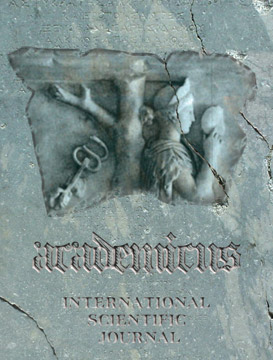Title:
Author(s):
Abstract:
In this article we will consider reconciliation in a post-conflict Macedonia. When Ohrid Framework Agreement (OFA) was signed, the international community greeted the achievements of the international community as it was signed under specific circumstances. Since it stopped the conflict, it had achieved its goal. Legally, the country became a multiethnic one with a power-sharing government. Yet, the political and intellectual elite, which slightly differ from each other, did not invest intellectual and political capital when searching for a specific Macedonian (inter) national identity, which goes beyond the limitations of the ethnic definitions and mythology around them. Instead, the national discourse is emphasized. Using the terms such as multiculturalism, multhiethnicity and polylingualisam creates additional confusion. When media and politicians use these phrases and incorporate their own political discourses, the damage is done. Critical thinking is not on the agenda in the educational process and the young people are expected to listen rather than think. There is a need for a structural communication among the citizens, a social link but also a philosophical and maybe an ideological communication, so as to fill in the gaps and avoid further divisions. The only way to accomplish that is to have an open and inclusive society. In order to achieve this, the culture of dialog should be nurtured. It is not enough for Macedonians and Albanians to know each other’s folklore and cultural history. Coexistence requires knowing the modern reality. Structured communication is a key. Absence of public discourse has a positive effect on the society’s wellbeing. A debate is not a threat to the process of creating politics. Instead, it legalizes the decision-making process. The intellectual elite should take the lead, show its grandiosity, and view Macedonia as a whole in a joint narrative, which considers all the specifics of the different cultures living together and integrates them in a common goal. In that respect, the OFA was the first necessary step, and its treatment as a Holy Grail ignores the fact that the job is not done. Instead it has just started.
Keywords:
reconciliation; Macedonia; post-conflict period; political elites; identity
Full Text PDF:
References:
View complete reference list, click
here
Digital Object Identifier DOI:
The article's content ©Academicus™ Process of Reconciliation in a Postconflict Macedonia
by
Doctoral Candidate Biljana Popovska
,
Dr. (PhD) Zhanet Ristoska
is licensed under a Creative Commons
Attribution-NonCommercial 4.0 International License.
Presented:
December 2014
Included for Publishing:
December 2014
Published:
January 2015,
Volume 6,
Issue 11
Academicus International Scientific Journal is an Open Access Journal. This means that all content is freely available without charge to the user or his/her institution. Users are allowed to read, download, print, search, or link to the full texts of the articles in this journal without asking prior permission from the publisher or the author. This is in accordance with the BOAI definition of open access. Users are obliged to cite the source (Academicus International Scientific Journal) and the author, according to the international citation standards.
To learn more about the OA Policy followed by Academicus ISJ, read Journal Regulations
Academicus
International Scientific Journal
pISSN 2079-3715
eISSN 2309-1088
Address:
Sheshi i Flamurit, Rruga Muze
Al-9401 Vlorë, Albania
Tel: +355 68 60 60 555
info@academicus.edu.al
https://academicus.edu.al



 Scholar
Scholar
 Crossref
Crossref
